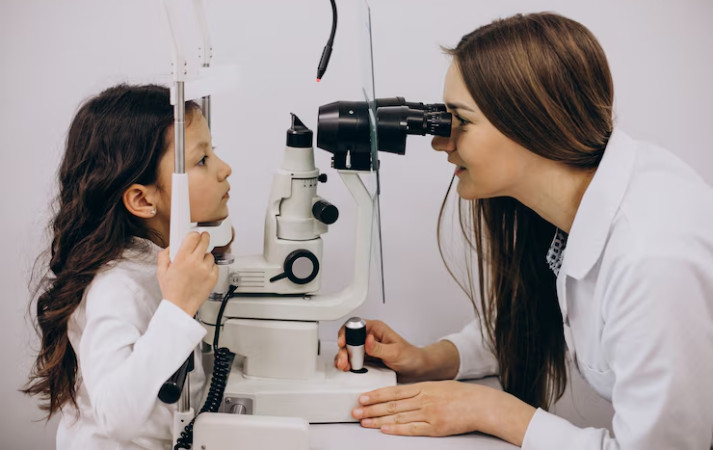Walking into an optometrist’s office for the first time—especially if it’s been a while since your last visit or, honestly, ever—can feel a little strange. Maybe your eyes have been bothering you lately. Perhaps you’re just trying to cross something off your to-do list. Either way, not knowing exactly what happens next can make the whole thing feel bigger than it is.
Let’s make it less of a mystery.
If you’ve scheduled your first appointment with a Sylmar optometrist, you can expect a visit that’s straightforward but surprisingly thorough. And possibly a little more personal than you expected.
The First Thing? Questions—Lots of Them
Be ready to answer a bunch of questions. They’ll ask about your health history, medications, maybe even family stuff. Even if your eyes seem fine, some issues run deep—like diabetes or high blood pressure—and they want the whole picture.
It might feel like overkill, especially if you’re just there for new glasses. But eye doctors aren’t just checking your vision; they’re checking on your overall well-being, too. You might not realize it, but your eyes can say a lot about the rest of your health.
Yes, There’s the Eye Chart. But That’s Just the Start.
You’ll probably sit in a chair and read letters off a screen. That part hasn’t changed much over the years. What’s changed is the detail.
Your optometrist is looking for signs of a refractive error, which basically means your eyes aren’t focusing light properly. That’s the root of common problems like nearsightedness or farsightedness. If you’re squinting more than usual or getting headaches after screen time, this is usually where it starts to make sense.
No trick questions, though. Just say what looks clearer. Or what doesn’t?
Some Machines Might Surprise You
You might not recognize the equipment. Some of it looks straight out of a sci-fi movie. There’s a device that takes a picture of your retina, another that might blow a puff of air into your eye (nobody loves that part), and maybe even a test that maps your field of vision.
One of the things they’re checking for is glaucoma—a condition you can have for years without symptoms. Early detection matters. That’s why these high-tech tests aren’t just for show.
The machines might look serious, but most of them take just seconds. If anything feels weird or makes you nervous, just say so. Eye doctors deal with that all the time.
It’s Not Just About Your Eyes
This part catches people off guard. Good optometrists will ask about your day-to-day. What kind of work do you do. How often you’re staring at screens. If your eyes ever feel dry or irritated late at night.
They’re not being nosy. Lifestyle plays a bigger role than most people think. You might not connect your sore neck or headaches to your eyes, but sometimes they are connected.
These conversations help your optometrist figure out not just what’s wrong, but why it might be happening.
Don’t Be Surprised If It Feels Like A Lot
For a routine checkup, there’s a lot going on. And it might feel like you’re being bombarded with info. You might walk out with a new prescription. Or find out you’ve been wearing the wrong strength lenses for years. Or you may just hear that everything looks healthy—and that’s it.
Still, most people leave with at least one “Oh, I didn’t know that” moment. That’s a good thing.
Sometimes it’s overwhelming. That’s normal. Ask questions, or even jot down a few notes if it helps.
What Happens After You Leave?
You’ll probably get a written summary, maybe a prescription, or a recommendation for follow-up. If something unusual shows up, they may schedule additional tests.
Even if nothing seems urgent, it’s still worth staying on top of things. Vision changes slowly. Sometimes, so slowly, people don’t even realize it’s happening until they finally update their glasses—and suddenly, everything looks sharper than they remembered.
Your first visit to a Sylmar optometrist might be more detailed than expected, but that’s a good thing. The focus isn’t just on seeing 20/20. It’s about catching potential problems early, improving your daily comfort, and understanding your overall eye health a little better.
No stress if you don’t get everything in one go. Ask questions. Take your time. The right eye care provider won’t rush you.
Featured Image Source: https://img.freepik.com/free-photo/little-girl-checking-up-her-sight-ophthalmology-center_1303-27493.jpg
